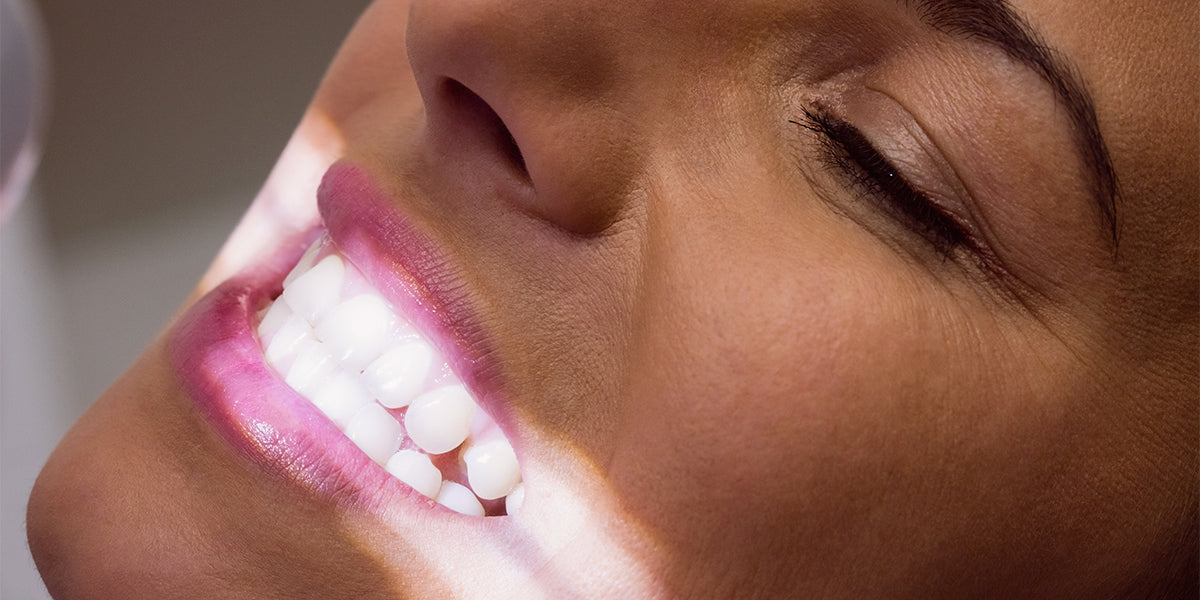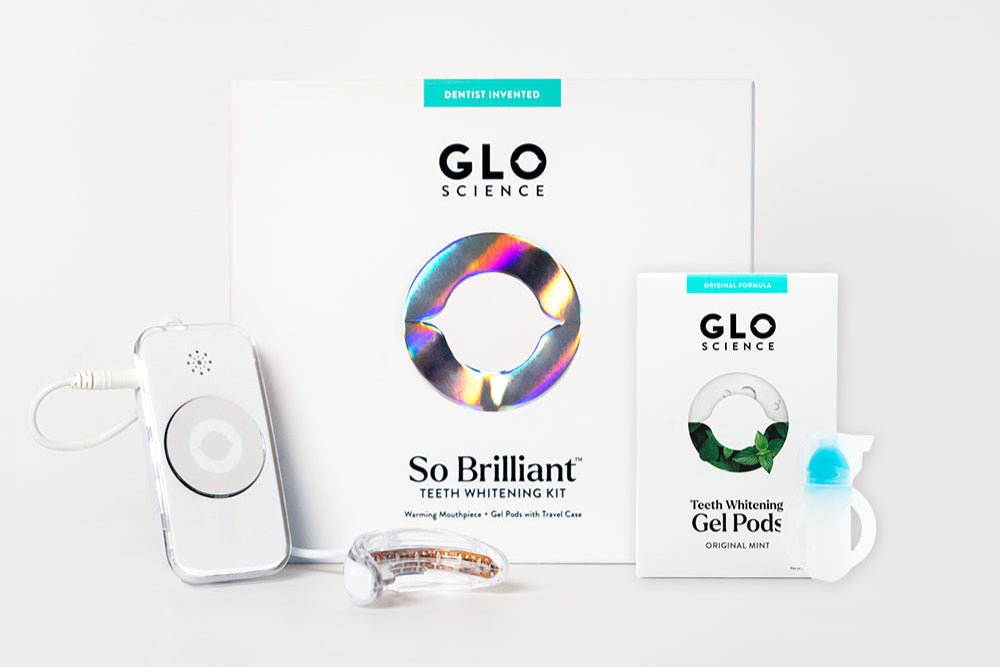
Understanding and Addressing Translucent Teeth
Have you ever looked in the mirror and wondered why your teeth or the edges of your teeth seem to be transparent? If you’re noticing your teeth are becoming see-through, this means that you have a condition known as translucent teeth. From daily habits to genetic nature, several factors can cause your enamel to thin out and your teeth to become translucent.
Understanding the causes of translucent teeth can help you prevent them from happening, so keep reading as we explore the causes, prevention, treatments, and how to fix them naturally at home!
What Are Translucent Teeth?
Translucent teeth are a condition where light can pass through the tooth, giving it a see-through appearance. The tooth enamel, the outer, hard shell of the tooth, is built up by tightly packed “hydroxyapatite” crystals. When the mineral structure of the enamel changes due to environmental or hereditary factors, the enamel thins out, and the tooth appears transparent.
Why Are My Teeth Translucent?
You might wonder, “Why are my teeth translucent?” Understanding its nature and causes is important, so let’s find out.
Is it Normal for Teeth to be Translucent?
The short answer is no. Your teeth are not meant to be translucent normally. While it can affect your appearance, translucent teeth cause other oral health issues, such as increased sensitivity and vulnerability to cavities. That’s why spotting the changes early is crucial so you can stop them from progressing. But first, let’s find out the common causes.
Key Causes of Translucent Teeth
1. Enamel Hypoplasia
It’s a condition caused by insufficient enamel formation. Usually, this occurs during the early stages of tooth development, but it can also happen in permanent teeth. The signs of enamel hypoplasia include deformities in the enamel manifesting as white spots or pitting. Among the causes of enamel hypoplasia are:
- Inherited condition
- Certain medications
- Trauma
- Malnutrition
- Pre-natal issues (illness or trauma)
2. Acidic Food and Drinks
Sipping carbonated drinks such as sodas, energy drinks, coffee, and wine can erode tooth enamel. These beverages, citrus fruits, juices, and tomato-based foods all have acidic properties that wear down teeth. Moreover, sugary treats and sports drinks create a breeding ground for bacteria in your mouth. These bacteria produce even more acids, further accelerating enamel erosion and thinning.
While these drinks may be tasty, limiting their consumption is key. If you must indulge, using a straw can help minimize contact with your teeth.
3. Acid Reflux and Frequent Vomiting
If you’re experiencing frequent heartburn or stomach acid reflux (GERD), it's crucial to consult your doctor for proper treatment. These conditions can contribute to enamel erosion, thinning your enamel and leading to a translucent appearance.
Similarly, frequent vomiting caused by chronic conditions like bulimia or morning sickness during pregnancy can have the same effect.
4. Celiac Disease
Celiac disease, an autoimmune condition triggered by gluten found in wheat, barley, and rye, can also impact your smile. If you have celiac disease and don't follow a strict gluten-free diet, it can damage your small intestine and hinder nutrient absorption. This lack of essential nutrients, including calcium, can weaken your tooth enamel over time, contributing to a translucent appearance.
5. Dry Mouth
Xerostomia, a condition that reduces saliva production, can be more than just an annoyance. Saliva plays a vital role in washing away food particles and bacteria and also helps neutralize acids in your mouth. Additionally, saliva contains nutrients such as phosphate and calcium that can strengthen the enamel. If you think one of your medications is causing you dry mouth, talk to your doctor to suggest an alternative.
6. Genetics
Genetics can play a role in the thickness of your tooth enamel. Some people naturally have thinner enamel, making their teeth more prone to translucency.
7. Dental Treatments
Overly aggressive brushing or using abrasive toothpaste can wear down your tooth enamel. The same goes for improper or excessive teeth whitening treatments. While these methods aim to brighten your smile, they can thin your enamel, leading to a translucent appearance.
How to Fix Translucent Teeth
While enamel can't be regrown, there are options to restore a healthy, opaque appearance.
Professional Treatment Options
Professional treatments offer long-lasting and effective solutions for more severe cases of translucent teeth or those seeking dramatic improvement.
- Bonding: This technique applies a tooth-colored resin, called composite, to the tooth's surface, effectively masking translucency and improving aesthetics.
- Veneers: These thin porcelain shells are custom-made to cover the entire front surface of the tooth, providing a more durable and natural-looking solution.
- Crowns: In severe cases where the tooth structure is weakened, crowns may be necessary. These caps completely encase the tooth, restoring strength and aesthetics.
- Enamel Microabrasion: This minimally invasive procedure removes a thin layer of enamel to even out the color and reduces mild translucency.
How to Fix Translucent Teeth Naturally
There are lifestyle changes and dietary modifications you can improve your enamel health and potentially reduce the appearance of translucency:
- Eat calcium-rich foods like dairy products, lactose-free milk, and leafy greens to provide building blocks for strong enamel.
- Switch to fluoride-containing toothpaste, or ask your dentist about prescription fluoride treatments, as it remineralizes your enamel and prevents further erosion.
- Drink plenty of water throughout the day to maintain a healthy mouth environment and neutralize the acids.
- Include probiotic-rich yogurt or supplements in your diet to promote healthy gut bacteria. Yogurt also contains phosphorus and calcium, which can fortify your enamel.
- Take calcium or vitamin D supplements if dietary changes alone aren't sufficient.
Tips for Preventing Translucency in Teeth
While not all causes of teeth translucency are preventable, like if it’s genetic or caused by celiac disease, the progression can be prevented or slowed down. Here are some essential practices to keep those pearly whites strong and healthy:
- Maintain good oral hygiene: Brush twice daily for two minutes each time, and floss daily.
- Limit acidic foods and drinks: Sodas, citrus fruits, and sugary drinks can erode enamel. Enjoy them in moderation, and consider using a straw.
- Chew sugar-free gum: Sugar-free gum stimulates saliva production, which helps neutralize acids and wash away food particles.
- Brush gently: Aggressive brushing can damage enamel. Use a soft-bristled brush and gentle technique.
- Regular dental checkups: Schedule regular appointments with your dentist for professional cleanings and to identify any potential problems early on.
- Fluoride treatments: Talk to your dentist about whether fluoride treatments might benefit you.
Translucent Teeth After Whitening: What to Do?
If you experience teeth translucency after teeth whitening, don't panic! This relatively common side effect usually subsides within a few weeks. To prevent this, use safe and gentle teeth whitening solutions or discuss options with your dentist to ensure a lasting result without the risk of enamel damage.
By following these tips and understanding the causes of translucency, you can achieve a healthy and beautiful smile you can be proud of.
Explore our safe and gentle, dentist-invented at-home teeth whitening devices HERE







